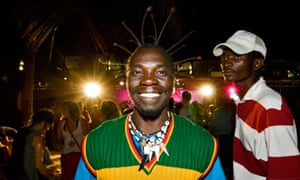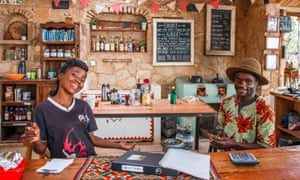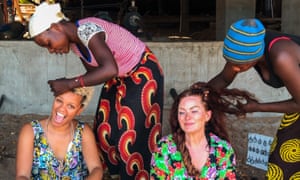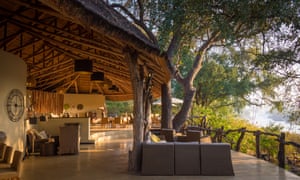
Off-grid experiences are harder to come by these days, but if you’re looking for something that will imprint itself on to your soul and make your heart quicken, Malawi is your destination. I first visited in 2011, and was gripped by an inexplicable love for the African continent and a deep sense of freedom, so returning now I was excited to see if I’d feel the same. A lesser-known land in south-east Africa, Malawi borders Tanzania, Mozambique and Zambia. It’s a comparatively small, land-locked country, beguiling because of its sea-like lake. It is rightly known as the Warm Heart of Africa.
I wasn’t prepared for quite how changeable its landscape would be. For the first 10 days of my holiday I am on an organised group excursion. It’s curated by Faraway, a company specialising in diligently planned group escapes. Signing up to be part of a rabble of 16 people of similar age to me but from different walks of life and parts of the world and all looking to go on a fantastic trip, felt a bit like being on a more intrepid 18-30s holiday. But Faraway is a lot classier – and livelier. With regular offerings of the infamous Malawian gin replacing Sambuca shots, it’s adventure travel for the Instagram generation. Group leaders Helen and Al present us with tote bags containing a “survival kit” that includes some lightweight cotton trousers (vital for the long coach journeys) and a black and white disposable camera.
There’s a special type of camaraderie that comes from travelling together in a big van and having an itinerary. In times where more people are single and looking for a temporary escape from the pressures of everyday life, Faraway’s Malawian trip is perfect. There’s something for everyone, from trekking in luscious countryside, lakeside sun-kissed afternoons and rugged island camping to high-end safaris and raving at a festival with sand beneath our feet. The experience, from the outset, is a perfect mixture of giddy, brave, backpacking hysteria and once-in-a-lifetime, breathtaking, memorable moments. Staying somewhere new every other night as part of a team adds to the bonding experience, and I quickly make friends with Gid, an Australian tech developer.
Making music … a happy festival-goer at the Lake of Stars, near Mangochi. Photograph: Steve McInerny/Alamy
We spend our first night getting into the group dynamic at a mid-budget lakeside spot called Mgoza Lodge, which consists of simple huts and a very welcome communal “dipping pool” in a shaded garden. The lodge is chill and the food is delicious. It’s also where we are introduced to Malawi’s gin for the first time, which is pretty lethal, and proves a heady mix with anti-malaria tablet side-effects.
In the morning we amble into the heart of Cape Maclear, the backpacker’s village that is home to Mgoza Lodge. It has a welcoming, hazy, hippy vibe and a must-visit small shop filled with beautiful handwoven placemats and other locally made homeware. The profits go directly to the makers, a group of skilled local women.
Next, we take a boat to Domwe and Mumbo, two remote islands in Lake Malawi’s National Park, though you can also kayak there from Cape Maclear. Domwe is the more rugged of the two islands and offers simple tent accommodation and, in the evening, a big fire and a chance to kick back after watching a sunset that is so potent it sets your dreams alight.

‘We watch the sunrise from our beds. We are lost for words’ … the reception desk at the Mushroom Farm
We eat fresh fish that I had bought earlier in the day from a visiting fisherman. There’s no phone signal and limited electricity so our night on Domwe has the air of wild romance. The following morning we head to Mumbo, my favourite of the two islands, which we have all to ourselves. Our accommodation is an upgrade from tents to bamboo cabins up in the hills, overlooking a jaw-dropping turquoise waterscape. In the morning we wake and watch the sunrise from our beds. Lost for words, all we can manage is: “This is incredible.”
Next, we go trekking. If you like to hike, then Zomba is a must. We stay at the cosy Zomba Forest Lodge, where they serve delicious home-cooked food made from locally grown ingredients. It’s run by Tom and Petal, who can organise a day’s hike that makes you feel like one of the dinosaurs in The Land Before Time. Zomba is under two hours from Blantyre airport and around four hours from the capital, Lilongwe.
Then it is time to party, so we head to the Lake of Stars, the international music festival whose hotel base borders Lake Malawi. If you are a swashbuckling explorer in search of the unexpected, then Lake of Stars is a dream. The gloriously patchwork-style programme is a mixture of cultural offerings, with new favourites always on offer from the African diaspora. My own favourites are Malawian rapper Lady Pace and Kenya’s Sauti Sol (the Kenyan equivalent to Take That and one of the biggest pop bands on the planet). I even DJ in a sand storm. It’s worth booking your trip around the festival, though best to stay off-site, and prepare to have the most fun at sunset. If you’re travelling in November, then you might also like to catch the annual Tumaini music and arts festival, which always takes place in a refugee camp. This year’s venue is Malawi’s Dzaka Refugee Camp in Lilongwe.

All tied up … Gemma Cairney and friend have their hair braided in Cape Maclear
At the end of the trip we go on safari. We are travelling down a dusty road in the Majete Reserve when we suddenly meet with an elephant so huge that Charles, our driver, stops – for a full 20 minutes. He is stunned, not knowing whether our rickety van might agitate the creature. The park itself is “self-drive” though you can also can go on a walking safari (too terrifying) or a boat safari to watch groups of yawning hippos up close. From our vehicle I spot skulking crocs and, that night, during the most majestic moment of all, we go out in a buggy in the dark of night, pull up at a viewing platform and spot a black rhino taking a long glug from a puddle. I freeze, awe-struck.
Mkulumadzi Lodge is all-inclusive and our plush bedrooms have big holes instead of windows. It feels like you’re sleeping in the wilderness, albeit under the highest thread count sheets.
I extend my stay and took some deep decompression breaths at Latitude 13, a swish hotel in the former Japanese ambassador’s residence 10 minutes from the centre of Llingowe. They serve us some life-giving crisp white wine on our first night. It couldn’t have come at a better time after days of long journeys. When I learn that Rihanna stayed here in 2017, I start to strut. A pool, fresh juices, massages and a laundry service are welcome and divine. The vast, stylish bedrooms work an industrial vibe and include African wall hangings and textiles. This design hotel is contemporary southeast Africa at its most enticing.

Ready for a sundowner … relaxing at Mkulumadzi Lodge. Photograph: Dana Allen
Also not to be missed, but for very different reasons, is the Mushroom Farm, a breathtaking eco-lodge 3,400ft above ground level. Situated 10km up a dirt track outside Chitimba, a village on the northern shore of Lake Chitimba and overlooking the Great Rift Valley, the sustainable lodge is a 10-hour drive from the capital. The best bet is to break the full-on journey with an overnight stay in the northern city of Mzuzu, the gateway to Lake Malawi. It’s four hours from Lilongwe. We blast through, which is a little hairy. Driving upwards in rural Malawi, off-road once night has fallen, hurtling through the forest isn’t the greatest. Do the drive while it’s still light. A car to take you the whole journey (to and from Lilongwe) will cost around £300. The Mushroom Farm can recommend drivers.
We stay in a cob house at the farm (there are various types of accommodation, including a reasonably priced dormitory), where we are on the edge of the world. You have to cross a patio with a sheer drop and no barrier to go to the compost loo. Despite its name, they grow more than mushrooms here in the perma-culture garden.
Coming this far north in Malawi is one of the most rural African experiences I’ve had. You can hear trance-inducing drumming in the local villages at night, and we walk the ancestral path down to the waterfall Manchewe Falls. It’s intense, but unforgettably beautiful.
Way to go
Gemma Cairney travelled on Faraway’s group escape. Prices for the Sept/Oct 2020 trip are £2,950 for the first four early bird spots, £3,100 thereafter, including accommodation, activities, tickets to the Lake of Stars, meals, transport and a donation to a local charity. International flights extra. Rooms at Latitude 13 in Lilongwe from £221. The Mushroom Farm, Livinstonia, has accommodation ranging from cob houses to chalets and safari tents from £5 to £25 a night. For information on the Lake of Stars festival, go to lakeofstars.org
African safaris with an emphasis on sustainability
Serengeti migration
Witness the spectacle of the wildebeest migration on a seven-day tour of Tanzania with G Adventures. The company works with local NGOs to ensure it gives something back. Tour departs 18 July 2020 and costs from £2,649pp, excluding flights (gadventures.co.uk).
Botswana safari
Wild camping in the Okavango Delta and a visit to the Victoria Falls are among the highlights of Responsible Travel’s low-impact safari. A percentage of the cost of each trip goes towards the Okavango SOS trees project. A 13-day trip costs from £1,490pp, plus a local payment of US$300, excluding flights (responsibletravel.com).
Road to Zanzibar Join an incredible overland expedition from Nairobi to Zanzibar with Intrepid Travel, which was one of the first carbon-neutral tour operators. The 12-day trip costs from £1,204pp (intrepidtravel.com).
Looking for a holiday with a difference? Browse Guardian Holidays to see a range of fantastic trips
This article contains affiliate links, which means we may earn a small commission if a reader clicks through and makes a purchase. All our journalism is independent and is in no way influenced by any advertiser or commercial initiative. By clicking on an affiliate link, you accept that third-party cookies will be set. More information.






